THE DEFIANT LIFE OF
Vera Figner

THE DEFIANT LIFE OF
Vera Figner
SURVIVING THE RUSSIAN REVOLUTION
LYNNE ANN HARTNETT

This book is a publication of
Indiana University Press
Office of Scholarly Publishing
Herman B Wells Library 350
1320 East 10th Street
Bloomington, Indiana 47405 USA
iupress.indiana.edu
Telephone 800-842-6796
Fax 812-855-7931
2014 by Lynne Ann Hartnett
All rights reserved
No part of this book may be reproduced or utilized in any form or by any means, electronic or mechanical, including photocopying and recording, or by any information storage and retrieval system, without permission in writing from the publisher. The Association of American University Presses Resolution on Permissions constitutes the only exception to this prohibition.
 The paper used in this publication meets the minimum requirements of the American National Standard for Information SciencesPermanence of Paper for Printed Library Materials, ANSI Z39.481992.
The paper used in this publication meets the minimum requirements of the American National Standard for Information SciencesPermanence of Paper for Printed Library Materials, ANSI Z39.481992.
Manufactured in the United States of America
Library of Congress Cataloging-in-Publication Data
Hartnett, Lynne Ann, author.
The defiant life of Vera Figner : surviving the Russian revolution / Lynne Ann Hartnett.
pages ; cm
Includes bibliographical references and index.
ISBN 978-0-253-01284-5 (cl : alk. paper)ISBN 978-0-253-01394-1 (eb) 1. Figner, Vera, 18521942. 2. Women revolutionariesRussiaBiography. 3. Women socialistsRussiaBiography. 4. Women socialistsSoviet UnionBiography. I. Title.
HX313.8.F54H37 2014
335'.83092dc23
[B]
2013046385
1 2 3 4 5 19 18 17 16 15 14
For Paul, Brendan, Ryan, and Camryn

CONTENTS
1
In the Twilight of a Fading Age
2
Age of Consciousness
3
Pioneers Diverted
4
Town and Country
5
The Tsars Death Sentence
6
Revolutionary Iconography
7
Transformation
8
Life and Death
9
Resurrection in Exile
10
An Old Revolutionary in a New Revolution
11
Revolutionary Survivor
ACKNOWLEDGMENTS
For the last several years, my husband and children have grown accustomed to a familiar refrain in our house: the sound of my voice uttering the words as soon as my book is done. So now, as this book goes to press, it appears that I will be painting the rooms, organizing the closets, and filling the photo albums that have awaited my attention for far too long. I have postponed all of these tasks, some more gleefully than others, and spent my days and many late nights with a rather exacting, impatient Russian woman. For more years than I care to admit, Vera Figner has demanded a great deal of my attention. As I tried to balance Veras claim upon my time with my other professional and personal responsibilities, I realized what she understood more than a century ago; that is, few things in life that are truly worthwhile and rewarding are ever done alone.
I suspect that most people who write only casually dont realize the extent to which writing is a collaborative process. Although I physically wrote this manuscript stowed away in isolation in my office, the foundations of its strongest elements were born and/or nurtured with friends, students, and colleagues at various conference presentations, around seminar tables, over lunch, in colleagues offices, and in the hallway of the St. Augustine Center at Villanova University. I have had the wonderful fortune to benefit from the guidance, insight, and direction of a great many people. Although any shortcomings of the book are mine alone, the manuscripts strengths certainly resulted in no small measure from the productive, affirming, collective endeavors that define my professional life.
Two of the men who proved instrumental in the development of this project passed away before it was completed. Raymond McNally was always an inspiration and a delight. He introduced me to Vera and indulged my developing fascination with this woman. In spite of the daunting prospects associated with writing a biography, he was a tireless champion of the project and of my historical career. I learned many things from Ray McNally but perhaps the most important lesson that he taught me was that historical scholarship should be fun. The second scholar in whose debt I will always remain is Richard Stites. He provided me with invaluable guidance and advice as I delved into Veras life, assured me that the world did indeed need a critical biography of Vera Figner, and convinced me that I should be the one to write it.
Roberta Manning brought a keen eye to the manuscript in its early stages, and her insights have stayed with me. She proved a staunch ally and a source of inspiration. Carol Petillo taught me invaluable lessons about the methodology of historical life narratives and gender analysis. Her delight as the book took shape was infectious and sustained me when progress temporarily stalled.
It has been my tremendous good fortune to find myself at Villanova University. Here I have discovered colleagues and friends who demonstrate the highest level of scholarship and collegiality. Adele Lindenmeyr has been the greatest mentor that I could ever imagine. Her knowledge of Russian history and her parallel journey in biography have helped me tremendously. Adele has been tireless in her support of my scholarship and my academic career; I treasure her insight and her friendship more than I can say. Through his example Paul Steege consistently reminds me of the hallmarks of great scholarship and stellar writing. His attention to detail, as well as his astute theoretical insights, have been invaluable. The ongoing conversations about history, teaching, research, and scholarship that I have shared with Adele, Paul, Judith Giesberg, Craig Bailey, Marc Gallicchio, Catherine Kerrison, Tim McCall, and Paul Rosier have enriched my biography and sweetened the journey immensely.
I owe a great debt to the anonymous readers secured by Indiana University Press; their comments guided my revisions and redirected me in several critical areas. I am most grateful for the precise, clever comments made by Ann Hibner Koblitz. She devoted a great deal of time to reading the manuscript, and I reaped extraordinary insights from her scholarly generosity. I have admired the work of Barbara Clements since my first days in graduate school, so it was a tremendous honor that she read my work. Her comments about and suggestions for my manuscript reinforced my admiration for her and confirmed that my respect for her work was well deserved.
I always will be tremendously grateful to Janet Rabinowitch for the encouragement and patience that she showed to me, and for the tireless devotion that she demonstrated toward the publication of this project. When Janet announced her retirement, I was disheartened that she wouldnt be there when Vera finally went to press. However, Janet left Vera and me in the wonderful hands of Raina Polivka, Darja Malcolm-Clarke, Peter Froehlich, and Jill R. Hughes, whose individual talents and wonderful attention collectively guided the last stages of the publishing process. I also would like to thank Jehanne Gheith and Louise McReynolds for offering professional guidance when it was needed the most. Thanks are similarly due to Tim Wessel, who read several chapters of the manuscript in its final stages of production. His smart comments and prompts to remember the readers who are not Russian historians kept me well grounded and inspired me to enhance the narrative.
Next page


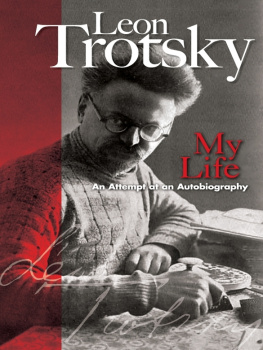


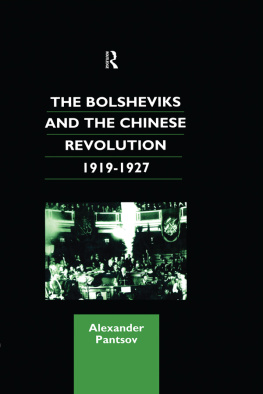
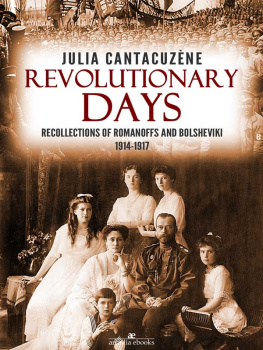
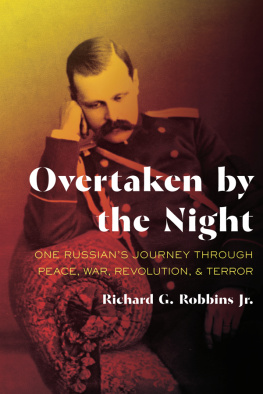

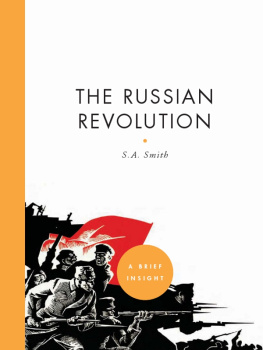
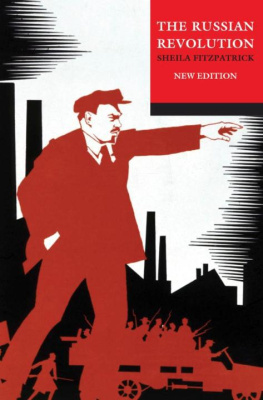


 The paper used in this publication meets the minimum requirements of the American National Standard for Information SciencesPermanence of Paper for Printed Library Materials, ANSI Z39.481992.
The paper used in this publication meets the minimum requirements of the American National Standard for Information SciencesPermanence of Paper for Printed Library Materials, ANSI Z39.481992.